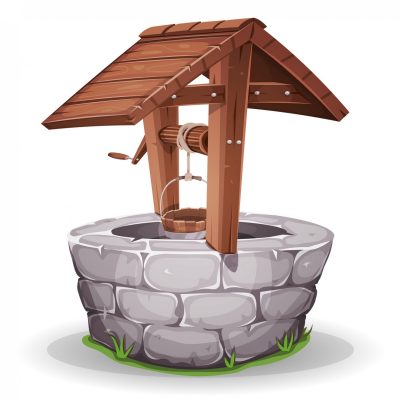Factors That Determine the Depth of a Well
 Have you been contemplating digging a water well in your backyard to supplement your primary water sources? If yes, you must know more about ground penetration, most importantly the ideal distance between the surface and the water bed. Home wells, in general, are approximately 300 feet deep, six-inches in diameter, and feature a six-inch casing. However, the depth of a well can vary from a hundred to eight hundred feet, depending on several different factors.
Have you been contemplating digging a water well in your backyard to supplement your primary water sources? If yes, you must know more about ground penetration, most importantly the ideal distance between the surface and the water bed. Home wells, in general, are approximately 300 feet deep, six-inches in diameter, and feature a six-inch casing. However, the depth of a well can vary from a hundred to eight hundred feet, depending on several different factors.
This article focusses on these different factors that play an essential role in determining the ideal depth of any water well. We discuss the most important of these factors.
Water Quality
The deeper the well, the better will be the quality of the water delivered. Why? The water at the top is exposed to soil organisms that contaminate it. That apart, the water at the top is also susceptible to contamination from chemical pollutants. It is, thus, that most local governments have specific rules regarding the minimum depth for wells. In general, it is a good idea to keep the depth of a well at least a few feet more than the minimum depth stated by the local government.
Depth of the Water Table
One of the vital things to consider while drilling a well is the level of the water table and how this level varies during various seasons. The depth of the well should be more than the water table level during the lowest season of the year. Almost all contractors analyze the annual statistical data over a few years to determine the ideal depth. Make sure to work with a contractor who is aware of these vital details.
Rock Formations
The water level underneath the ground is also determined by the rocky nature of the landscape. If the underground landscape has extremely rocky formations, water can reach even a few thousand feet under the ground. The pipe diameter also depends on the depth — the larger the storage allowance, the thicker should be the pipe. Your contractor must be aware of these rock formations and decide on the water well depth after taking into account these formations.
Surface Contamination
The deeper a well, the lesser are the chances of bacteria and soil organisms contaminating the water. However, in the case of very deep wells, the water has to traverse rocks and soil to reach the surface, thereby increasing the chances of contaminants entering the water stream. Similarly, in the case of deep wells, the chances of minerals entering the water stream also increase. Since mineral-rich water must be softened before consumption, deep wells often also lead to high maintenance costs. Thus, wells should neither be too shallow nor too deep. The depth should be such that it does not compromise the quality of water.
Longevity
Deeper wells have a longer life. Why? Other than the fact that they have a low draw rate, these wells also register low silting at the bottom. Shallow wells, on the other hand, register high silting. Since cleaning silting is an expensive process, the maintenance cost of shallow wells often goes up. Moreover, it is also challenging to find service providers who offer silt-cleaning services.
Building Codes and Regulations
The most important thing to take into account while drilling wells is your area building codes and regulations. Non-compliance with these regulations can lead to legal action. These regulations cover various areas, such as grouting and sealing and well-cap reinforcement requirements. In general, most building codes and regulations require the casing to reach the bedrock.
If you have been thinking about getting a well for your residential property, you must invest your valuable time in finding a contractor who knows all the important details. Plus, a skilled professional will also give you an idea of the cost at the very start, thereby giving you time to arrange your finances.
Give Ries Well Drilling Inc a call to answer any questions you may have about water well drilling in the Metro-Detroit area. We can be reached at (586) 784-9516!
We provide Water Well Drilling Services in the following Michigan Counties:
